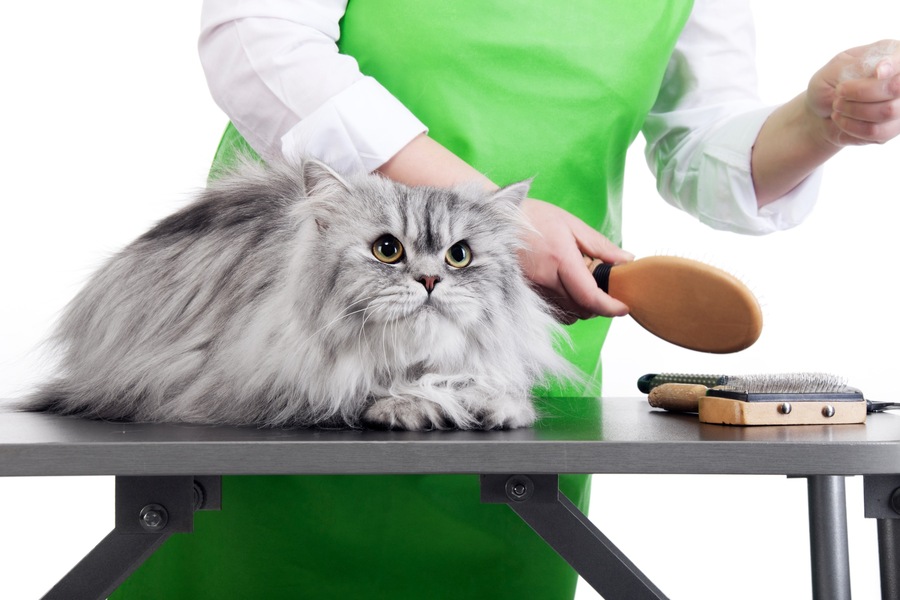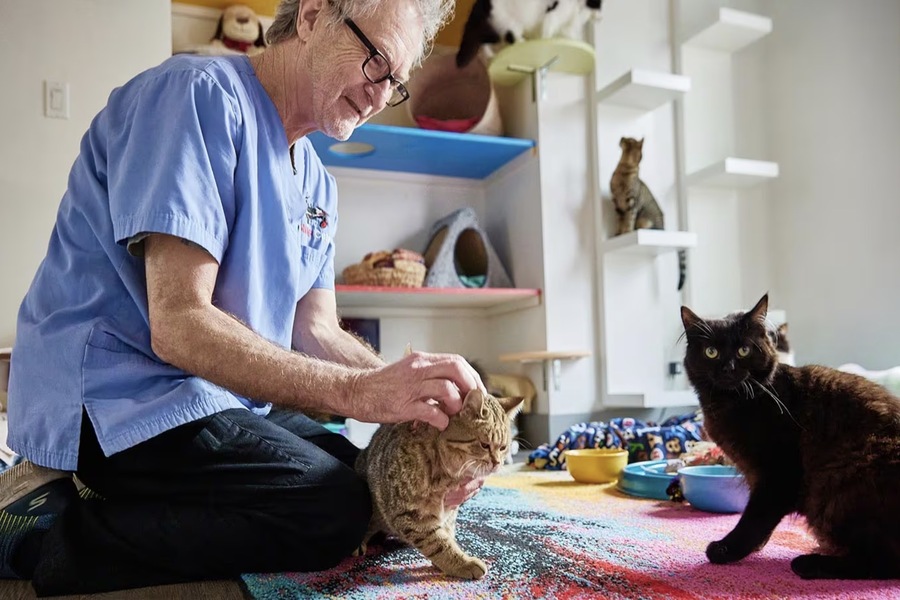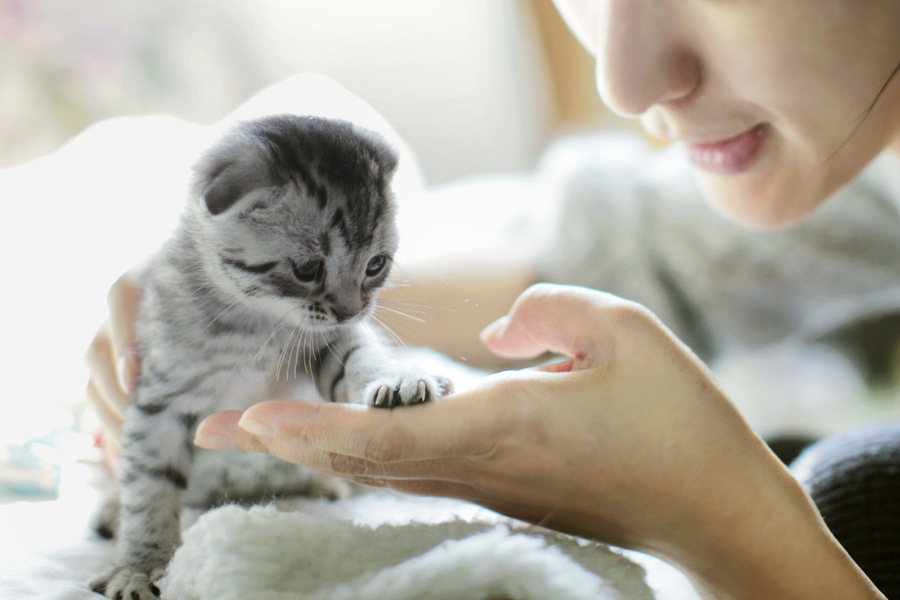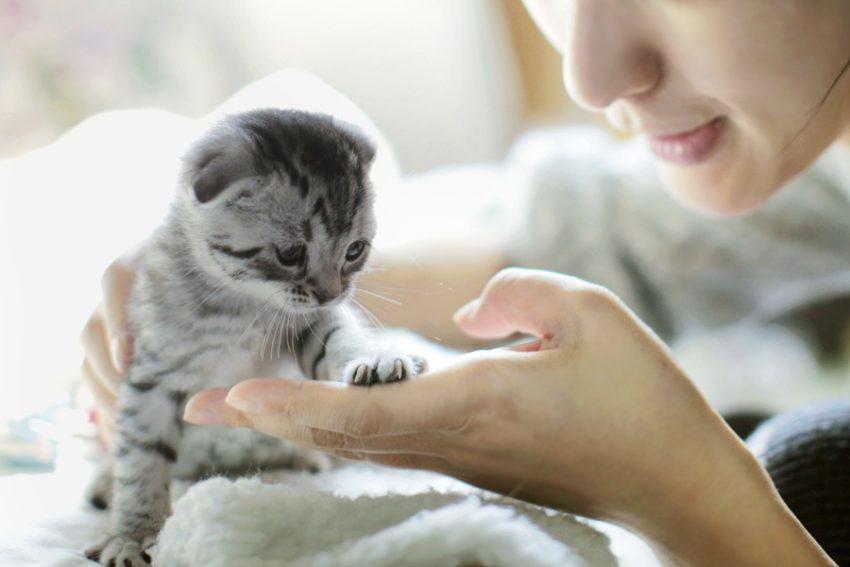As pet ownership grows in Dubai and the UAE, cat boarding facilities are seeing increased demand for specialized services, particularly for older and special-needs cats. Aging cats and those with unique health conditions require additional care, which includes specific accommodations, attentive handling, and sometimes even medical support. Boarding facilities that cater to these needs offer peace of mind to pet owners, ensuring that their cats receive quality care in their absence. This article explores how cat boarding facilities meet the needs of older and special-needs cats, from adapting living spaces to providing specialized diets and monitoring health.
Page Content
Understanding the Needs of Older and Special-Needs Cats
Cats entering their senior years often experience changes in mobility, energy levels, and overall health. Many older cats develop conditions like arthritis, reduced vision or hearing, and dental issues, which require careful attention. Special-needs cats, on the other hand, may have chronic conditions such as diabetes, kidney disease, or even physical disabilities. Cat boarding facilities that accommodate these cats must take into account their physical limitations, dietary needs, and the necessity for regular health monitoring. Understanding these specific needs is essential for ensuring the cats’ comfort, safety, and well-being while their owners are away.
Designing Comfortable and Accessible Living Spaces
Older and special-needs cats may face challenges with traditional boarding setups, so facilities often design specific spaces that cater to these cats’ physical limitations. For example, boarding rooms may feature ramps or lower platforms to make movement easier for cats with reduced mobility. Bedding in these areas tends to be softer and more supportive to accommodate joint issues or other physical discomforts. By tailoring spaces with the needs of aging or special-needs cats in mind, facilities reduce the physical strain on these cats and provide an environment that supports their comfort and relaxation.
Temperature and Climate Control for Optimal Comfort
Older and special-needs cats are often more sensitive to temperature changes than younger, healthy cats. In Dubai, where temperatures can fluctuate significantly between indoors and outdoors, climate control within boarding facilities is vital. Facilities maintain a consistent indoor temperature, ensuring it stays within a comfortable range for cats with weakened immune systems or respiratory conditions. Climate control not only protects cats from extreme weather but also reduces the stress they might otherwise experience from environmental changes, contributing to their physical well-being during their stay.
Specialized Diets and Nutrition Management
Cats with unique health requirements often follow specialized diets tailored to their conditions. Boarding facilities that cater to older or special-needs cats understand the importance of maintaining these dietary routines. Staff in these facilities are trained to administer specific foods and supplements and follow meal schedules that align with each cat’s home routine. For example, diabetic cats may require a high-protein, low-carbohydrate diet, while cats with kidney disease often need food that is low in phosphorus. Maintaining consistent dietary habits is crucial for these cats, as it prevents health complications and promotes stability during their stay.

Administering Medications and Health Monitoring
Many older or special-needs cats require regular medication or health monitoring. Boarding facilities prepared to handle these responsibilities have staff trained to administer medications, whether in pill form, topical applications, or injections. For example, diabetic cats may require insulin injections, which need to be given on a strict schedule. Boarding facilities also monitor cats for changes in behavior or health status, ensuring that any signs of discomfort or distress are promptly addressed. By closely observing these cats and providing timely medical interventions, facilities help manage their health effectively, offering reassurance to pet owners.
Creating a Low-Stress Environment to Reduce Anxiety
Cats, particularly older or special-needs cats, can experience heightened stress when away from their usual environment. Boarding facilities recognize the importance of minimizing stress and anxiety by providing a calm and quiet atmosphere. Separate areas may be designated for older or special-needs cats to reduce exposure to younger, more active cats. Some facilities also use pheromone diffusers to create a sense of calm, helping cats adjust to their temporary surroundings. This environment not only reduces stress but also contributes to better health outcomes, as anxiety can exacerbate physical conditions in vulnerable cats.
Maintaining Hygiene and Sanitation for Health Protection
For older cats and those with compromised immune systems, cleanliness in boarding facilities is paramount. Boarding facilities prioritize high standards of hygiene and sanitation, regularly cleaning rooms, bedding, and litter boxes to prevent any risk of infection. Staff often use veterinary-approved cleaning products that are safe for sensitive cats and ensure that any waste is disposed of promptly. These practices help protect the health of cats who may be more susceptible to illness, maintaining a clean environment that minimizes the spread of bacteria or viruses and keeps the cats healthy during their stay.
Providing Gentle and Familiar Handling
Older and special-needs cats require gentle handling that respects their physical limitations and health conditions. Boarding staff who care for these cats are trained to move them with care, avoiding any undue pressure on sensitive areas like the joints or abdomen. This approach minimizes discomfort and makes daily care routines, such as grooming and feeding, less stressful. Familiar handling techniques, including speaking in soft tones and moving slowly, can help older or special-needs cats feel more comfortable and secure. Respectful handling ensures that these cats receive the care they need without added stress or discomfort.
Monitoring Behavioral Signs for Health Indicators
Cats often show subtle behavioral changes when they are experiencing health issues. Older and special-needs cats, in particular, may display signs of pain, discomfort, or distress through behaviors such as hiding, avoiding food, or being unusually vocal. Boarding staff trained to observe these signals can identify potential health concerns early and take appropriate actions. For instance, changes in appetite or energy levels could indicate that a cat is unwell or that its condition requires adjustment. Close monitoring helps detect issues before they escalate, contributing to the cat’s well-being during its stay.
Emergency Preparedness and Access to Veterinary Care
Preparedness for health emergencies is essential for facilities that care for older and special-needs cats. Cat boarding facilities in Dubai often establish partnerships with local veterinarians to ensure that any emergency care can be provided quickly. Staff are trained to recognize emergency situations, such as respiratory distress or sudden lethargy, and act swiftly to get cats the medical attention they need. This immediate access to veterinary care gives cat owners peace of mind, knowing that their pets will receive professional assistance if a health issue arises during their boarding stay.
Encouraging Mental Engagement and Comfort
Older and special-needs cats benefit from mental engagement, which helps reduce stress and maintains cognitive health. Boarding facilities provide enrichment activities tailored to each cat’s abilities and interests, such as gentle play, puzzle feeders, or sensory experiences like scent trails. These activities are low-intensity and carefully supervised, designed to provide stimulation without causing physical strain. Enrichment not only keeps cats occupied but also supports mental health, helping them stay relaxed and content while they are away from home.

Regular Communication with Pet Owners
Communication with pet owners is essential when caring for older or special-needs cats. Many boarding facilities keep owners updated on their cats’ well-being through messages, photos, or even video calls. This frequent communication reassures owners that their cats are receiving quality care and provides updates on any changes in health or behavior. In Dubai, where many pet owners travel frequently, these updates offer a valuable connection to their pets and peace of mind that their cats are in good hands, especially when their pets require extra care.
Training Staff in Specialized Care Techniques
Boarding facilities that cater to older and special-needs cats often provide specialized training for their staff. This training covers various aspects, including administering medication, identifying health warning signs, and understanding the physical limitations of elderly cats. Staff trained in these areas are better equipped to handle the unique challenges of caring for these cats, ensuring that they receive the attentive, knowledgeable care they need. Well-trained staff contribute to the quality of the facility’s service, enhancing its reputation and providing a trusted option for cat owners in need of specialized boarding.
Conclusion
Cat boarding facilities that cater to older and special-needs cats play an essential role in supporting these pets when their owners are away. By adapting spaces, maintaining health protocols, and providing gentle, attentive care, these facilities create an environment that prioritizes comfort and safety. For pet owners in Dubai and the UAE, choosing a facility that understands the unique needs of aging and special-needs cats ensures that their pets are well-cared for, protected, and as comfortable as possible. As the demand for specialized pet services grows, boarding facilities continue to evolve, offering comprehensive support for cats with additional needs.
Baseball fan, coffee addict, audiophile, hand letterer and front-end designer. Performing at the crossroads of design and sustainability to develop visual solutions that inform and persuade. My opinions belong to nobody but myself.


